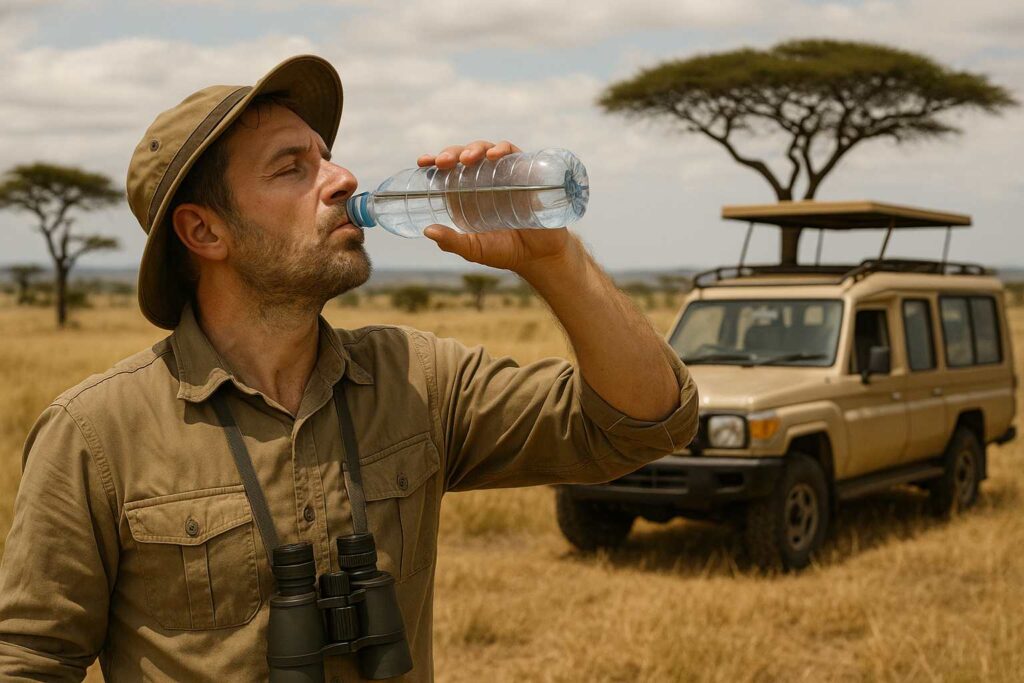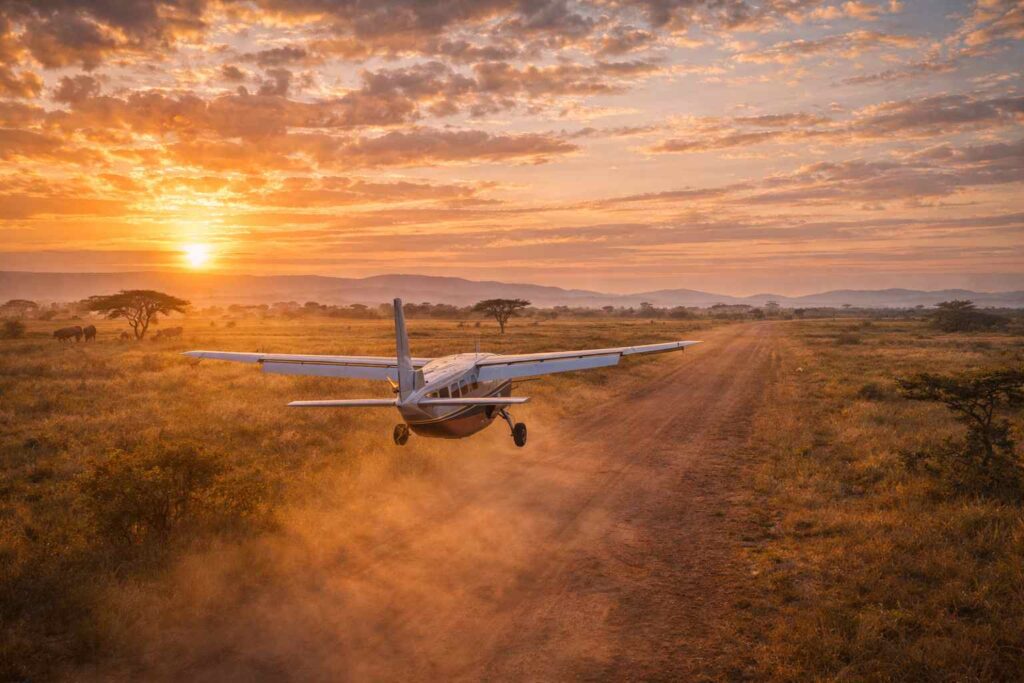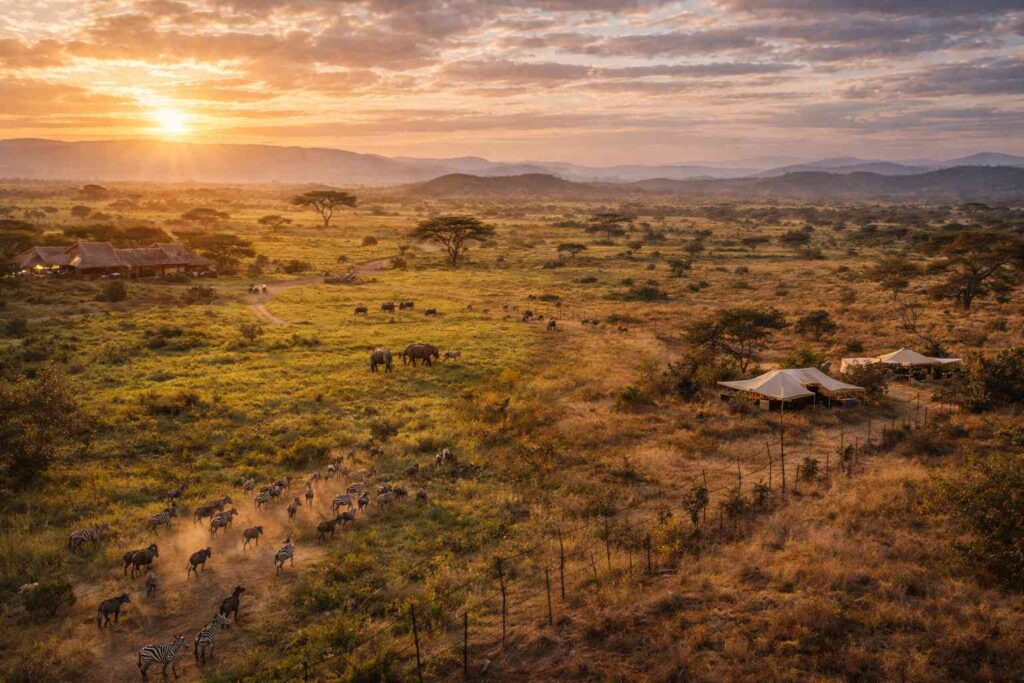Going on an African safari is an adventure of a lifetime—but it also means entering wild, remote environments where health risks differ significantly from those at home. Preparing for these conditions is essential, especially when you consider the mix of climate, wildlife, and rural healthcare access. This guide outlines the most common safari health risks and how to handle them with confidence and care.
1. Malaria and mosquito-borne illnesses
Malaria is the top concern in many safari regions, especially during the rainy season. Parks like Kruger, Serengeti, and Lower Zambezi are malaria zones.
How to prepare:
- Consult a travel clinic about antimalarial medication (e.g., Malarone, doxycycline).
- Use DEET-based repellents and wear long clothing at dawn and dusk.
- Sleep under mosquito nets and stay in well-screened rooms.
Other illnesses like dengue and chikungunya may occur in certain regions, though far less frequently than malaria.
2. Dehydration and heat exhaustion
African safaris often mean long hours in open vehicles under intense sun. Combine that with dry air and excitement, and it’s easy to forget to drink enough water.
How to prepare:
- Carry a refillable water bottle and sip often, not just when thirsty.
- Wear a wide-brimmed hat, lightweight long sleeves, and sunglasses.
- Schedule midday breaks to rest in the shade or indoors.
Severe dehydration can escalate to heat stroke, which requires urgent medical attention.
3. Sunburn and UV overexposure
UV levels in Africa are strong, even on cloudy days. A day out without proper skin protection can result in painful burns.
How to prepare:
- Apply broad-spectrum SPF 30+ sunscreen every 2–3 hours.
- Wear UV-protective clothing and lip balm with SPF.
- Avoid peak sun hours (12 PM–3 PM) when possible.
Remember that safari vehicles often have open roofs—you’re exposed even when seated.
4. Allergic reactions and insect bites
Dust, pollen, stings, or unfamiliar foods can trigger allergic reactions, from mild rashes to serious anaphylaxis.
How to prepare:
- Carry antihistamines for mild reactions.
- Pack an EpiPen if you have a history of severe allergies.
- Inform your guide or lodge staff about your allergies in advance.
Also watch out for tsetse flies, which can cause painful bites and, rarely, transmit sleeping sickness in specific regions.
5. Traveler’s diarrhea and stomach upset
Changes in diet, water sources, and hygiene levels can lead to gastrointestinal issues.
How to prepare:
- Stick to bottled or filtered water.
- Wash hands or use sanitizer before eating.
- Pack oral rehydration salts, anti-diarrheal medication, and probiotics.
Choose reputable lodges with strong food safety standards, and avoid street food or unwashed produce.
6. Motion sickness and vehicle fatigue
Game drives over rugged terrain can trigger motion sickness in some travelers.
How to prepare:
- Sit near the front of the vehicle and focus on the horizon.
- Bring motion sickness tablets or use ginger-based remedies.
- Take regular breaks and stretch during long drives.
If you’re prone to back issues, consider bringing a lumbar pillow or support cushion.
7. Animal-related injuries
Though rare, safari-goers should be aware of the potential danger of close wildlife encounters.
How to prepare:
- Always follow your guide’s instructions.
- Stay inside the vehicle unless explicitly told it’s safe to exit.
- Never attempt to feed or approach wildlife, no matter how tame they seem.
Even small animals can bite or scratch, and any break in the skin can become infected in a hot climate.
8. Pre-existing conditions and medication management
Remote areas mean limited access to medical help. Managing chronic conditions is crucial.
How to prepare:
- Carry sufficient supply of medication in original packaging.
- Bring a doctor’s letter describing your condition and treatment.
- Inform your tour operator of any medical concerns or limitations.
A basic travel health insurance plan that covers evacuation is highly recommended.
9. Vaccination and general health prep
Check required and recommended vaccines for your destination at least 6–8 weeks before departure.
Common safari vaccines:
- Yellow fever (mandatory in some countries)
- Typhoid
- Hepatitis A and B
- Tetanus and diphtheria boosters
Bring a copy of your vaccination certificate, especially for yellow fever if traveling between African countries.
Conclusion
Health concerns shouldn’t keep you from the safari of your dreams—but they should prompt you to prepare thoughtfully. With a solid understanding of the risks and a few smart precautions, you can focus on what really matters: soaking in Africa’s breathtaking landscapes and unforgettable wildlife moments.
FAQs about health risks on safari
Yes. Pack a basic kit with band-aids, antiseptic, tweezers, painkillers, anti-diarrheals, and any personal medications.
With planning and age-appropriate accommodations, yes. Choose malaria-free areas or travel in dry season.
Most lodges can radio for help or arrange air evacuation. Ensure your travel insurance includes medical evacuation.
Yes, many lodges accommodate dietary needs if notified in advance.
Possibly in major cities, but it’s far better to get vaccinated before departure.
Guides are trained in first aid, and many lodges have access to 24/7 medical support or emergency evacuation.
Rarely encountered, especially during daylight. Shake out shoes and use a flashlight at night.
Reputable lodges maintain high hygiene standards and cater to international guests.
Unlikely. Most safari parks are at low to moderate altitudes.
Not mandatory, but highly recommended. Some camps won’t accept guests without proof of coverage.






